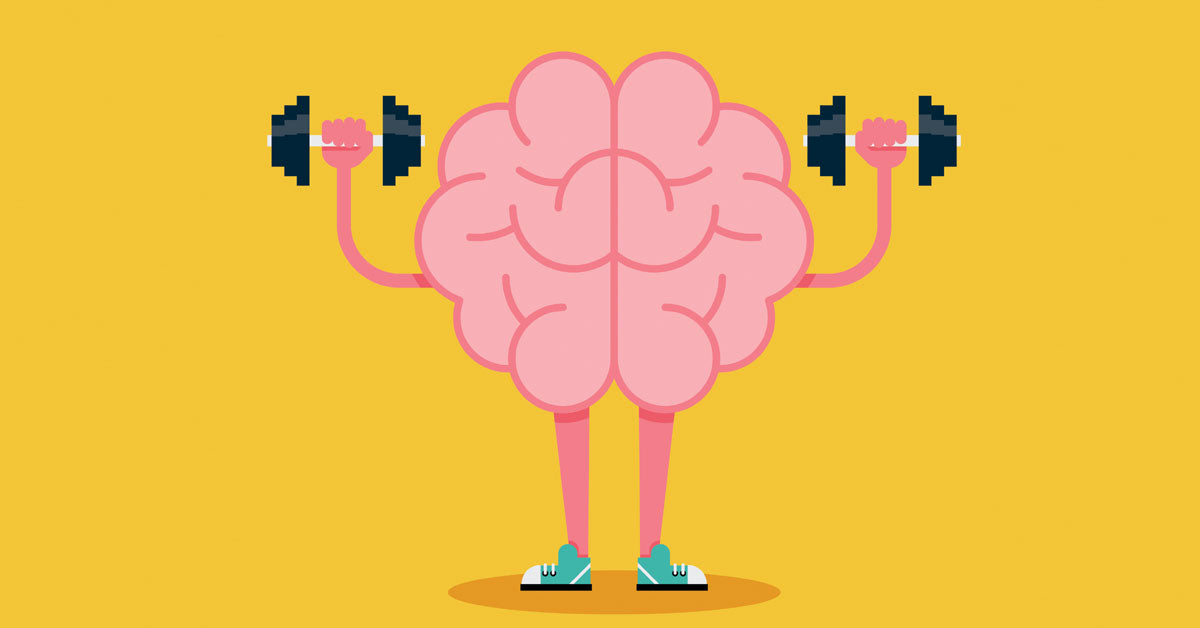If you think about fitness, you’re likely going to picture someone exercising, running, or lifting weights in the gym. There is another type of fitness that does not require strenuous activities and people talk about it less often - and that’s mental fitness. If you want to know how to be mentally fit, this article is for you.
What is Mental fitness?
If we want to know how to be mentally strong, we should first consider what it means.
Mental fitness refers to your well-being, the way you behave, how you feel, and how you think. Mental fitness means having a positive view of life and having that positivity reflected in everything you do.
Why is Mental Fitness Important?
Mental strength, or fitness, is a critical part of living a long, happy, and healthy life.
When you’re mentally fit, you’ll be less likely to struggle with mental health problems such as depression and anxiety. It helps boost your self-esteem and mental ability. Mental strength enables you to cope with stress and maintain overall well-being.
What Can Mental Fitness do for you?
Anxiety affects an estimated 301 million people worldwide[1]. Stress is also extremely common, and leads to frustration[2], negativity, irritability, and a low mood.
Mental fitness helps you control and manage the negative effects these conditions have on your life. It’s something that improves your self-awareness and helps you be more conscious of your health, how certain things affect you, and your decision-making processes.
The Benefits of Mental Fitness
There are many reasons why you should consider working on your mental fitness. When you’re “mentally fit”, you feel more confident, and you can expect better cognitive functioning and faster information processing.
Apart from these, here are other benefits you can expect:
-
It becomes easier to learn and build new skills.
-
You sleep better, which further improves your physical and mental health.
-
It’s easier to respond to something instead of having doubts and uncertainties.
-
You’ll also be more present, which means you’re going to be more aware of your surroundings, your body, and what’s going on in life.
-
Mental fitness is also great for boosting positivity - and that can help prevent mental conditions like depression and anxiety.
Understanding your Mental Health Status
If you want to improve your mental strength and fitness, then you have to be aware of your current mental state.
You could see your therapist and talk with them about your mental fitness. He will ask you questions that are going to help both of you understand your current state of stress and mental health.
Alternatively, you can also do an online assessment. Many websites offer free assessments that give you a better overview of your current state and help you understand where you need to focus your attention.
How to improve Mental Fitness
Now that you have a better idea of your current mental fitness, it’s time to consider a few important steps you can take for improvement.
-
Start your day by making your bed: When you get out of bed, do you just leave the sheets until you get back from work? It might sound simple, but making your bed in the morning is an important step in self-care and boosting your strength of mind. It creates routine and discipline, which can both be very helpful in the long term.
-
Move your body: Don’t sit down the entire day. Even if you have a desk job, exercise plays an important role in developing mental strength. While exercise works on your physical fitness, researchers have found[3] that it also boosts your mood, confidence, and self-esteem.
-
Eat for your mind, not just your body: What you eat doesn’t just affect your physical health, but also your mental health - and your brain. Eat a diet that is high in healthy fats, like omega-3 fatty acids, as well as important nutrients that the brain uses to function properly. You can include NUU3 Active Immunity Gummies with your daily dose of vitamins and minerals
-
Categorize your priorities: Setting priorities can boost your mental fitness. Make a list of the tasks to be done and prioritize them. You will find out that you will feel more accomplished by the end of the day.
-
Try a new hobby or skill: You should consider taking up a new hobby. It could be something simple, like painting, or learning to play the piano. There will be a feeling of satisfaction when you succeed and get past the challenge of learning something new.
There are times when anxiety, depression, and stress make it difficult to do some of these activities. If you’re faced with such situations, consider NUU3 Keep Calm Gummies. They’ll help you feel more relaxed, reduce anxiety, and make it easier to work on your mental health.
Another tip would be to use NUU3 Green Pura, a natural supplement that focuses on introducing more antioxidants to your body. Now, these antioxidants reduce oxidative stress caused by free radicals - something that can lead to inflammation and affect your brain function.
FAQs
What are the four pillars of mental fitness?
Awareness, connection, insight, and purpose - these are the pillars that you have to focus on when you want to become mentally fit. Each one of the pillars plays its role in helping you have a healthier, clearer mind.
Why do we need to be mentally fit?
Being mentally fit can help improve your awareness of your mental state and physical well-being, ultimately reducing your risk of serious diseases as you become older.
What is a mental fitness test?
A mental fitness test is not an I.Q. test. It’s a test that sees how well you are keeping up with the well-being of your emotions and brain.
Takeaway
While we often turn to physical fitness to look and feel better, you shouldn’t overlook the role that your mind plays. Aiming for mental fitness can help you have a sound mind in a sound body. This can go a long way in improving your health and let you live a long and healthy life.
References
1] ↑ https://www.who.int/news-room/fact-sheets/detail/anxiety-disorders
2] ↑ https://medalerthelp.org/blog/stress-statistics/
3] ↑ https://www.ncbi.nlm.nih.gov/pmc/articles/PMC8705508/










